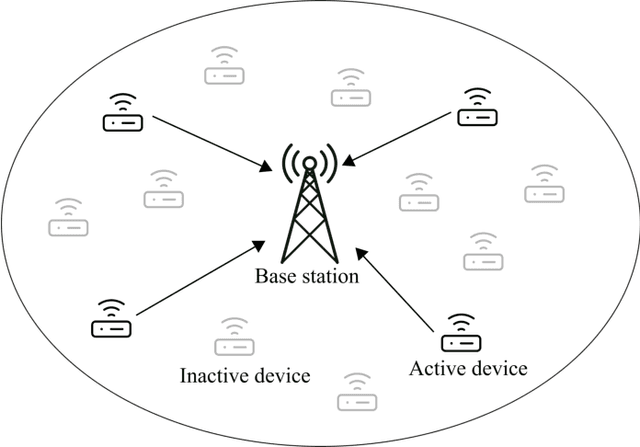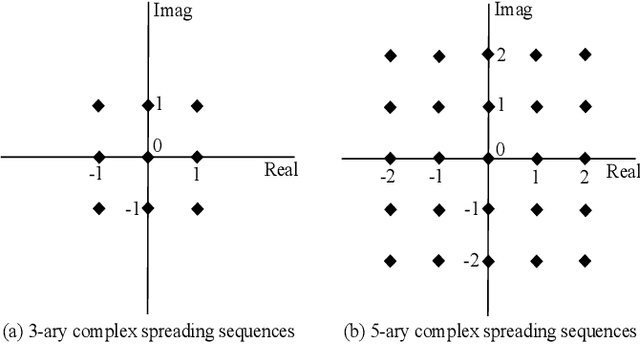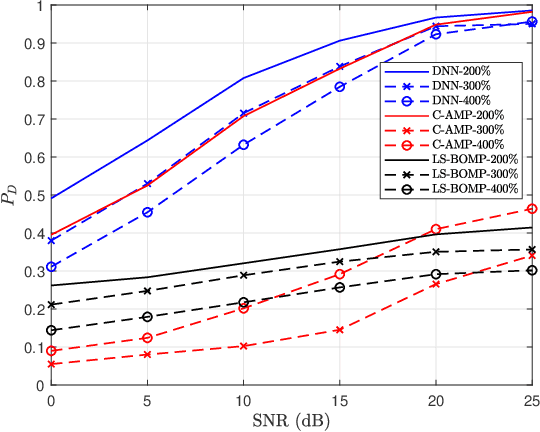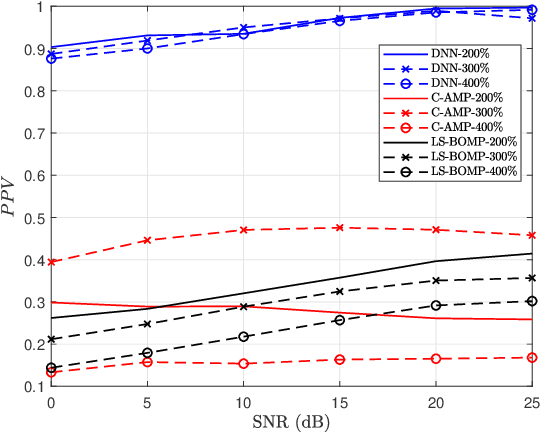Deep Neural Network-Based Blind Multiple User Detection for Grant-free Multi-User Shared Access
Paper and Code
Jun 21, 2021



Multi-user shared access (MUSA) is introduced as advanced code domain non-orthogonal complex spreading sequences to support a massive number of machine-type communications (MTC) devices. In this paper, we propose a novel deep neural network (DNN)-based multiple user detection (MUD) for grant-free MUSA systems. The DNN-based MUD model determines the structure of the sensing matrix, randomly distributed noise, and inter-device interference during the training phase of the model by several hidden nodes, neuron activation units, and a fit loss function. The thoroughly learned DNN model is capable of distinguishing the active devices of the received signal without any a priori knowledge of the device sparsity level and the channel state information. Our numerical evaluation shows that with a higher percentage of active devices, the DNN-MUD achieves a significantly increased probability of detection compared to the conventional approaches.
 Add to Chrome
Add to Chrome Add to Firefox
Add to Firefox Add to Edge
Add to Edge